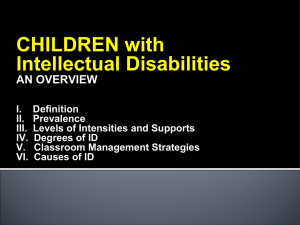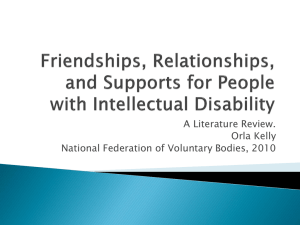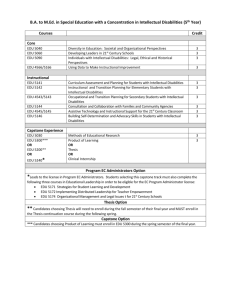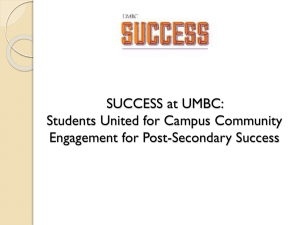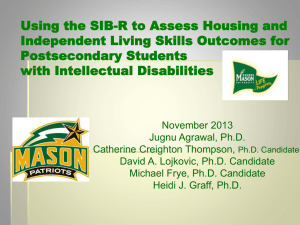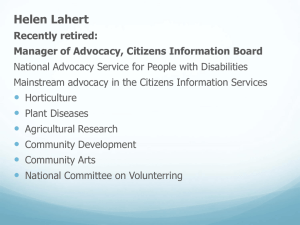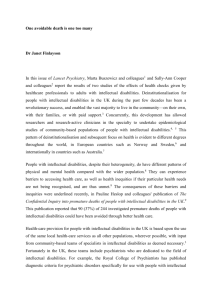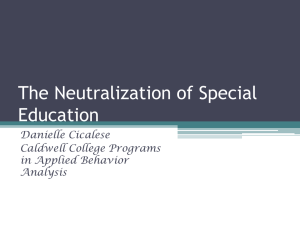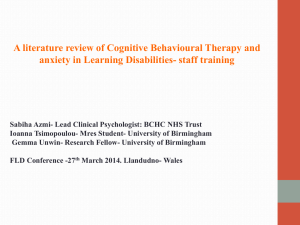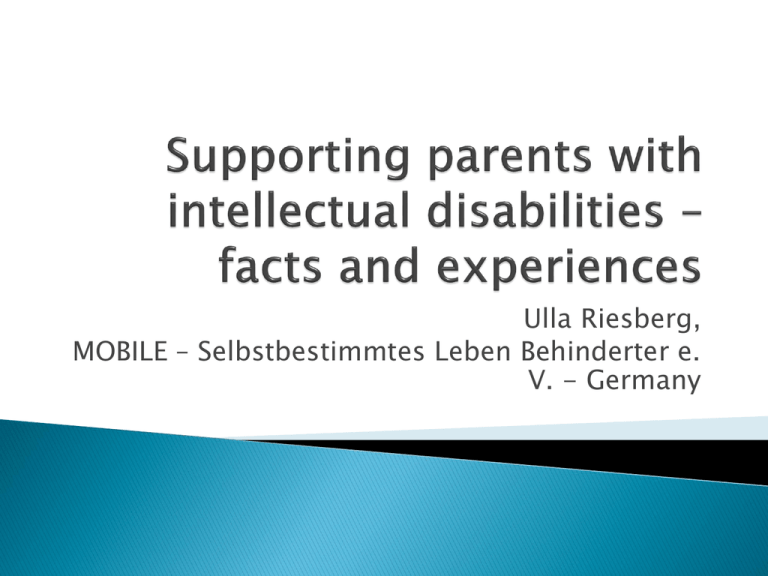
Ulla Riesberg,
MOBILE – Selbstbestimmtes Leben Behinderter e.
V. - Germany
A pilot project - 2006 to 2009
Building up a support service for families
Networking with different services in the
community
Research on the living conditions and support
of parents with disabilities
Research started in the beginning of the
1990ies by Prof. U. Pixa-Kettner vom Bremen
First survey in 1993:
969 parenthoods – 1366 children
Follow-up research in 2007
1584 parenthoods - 2199 children
Increase of 40%
People with intellectual disabilities
have children with intellectual disabilities
have more children than the average
Parents with intellectual disabilities
have insufficient parental skills and they are
not able to develop them.
abuse and neglect their children
Most intellectual disabilities are non genetic
High risk of developmental delay in early
childhood
Language development often affected
Necessity of supporting child development by
earlyintervention programs etc.
Pregnancies are often unwanted
Lack of sex education and insufficient birth
control
Separation of parent and child often lead to
the desire for a second child
Maternal sensitivity and intuitive parental
skills do not depend on intelligence
no mono-causal relation between parental
skills and intellectual disabilities
Social factors like poorness, unemployment,
bad health conditions, low level of education,
experiencing alcoholism, violence or abuse
affect parental behaviour
No mono-causal attribution of intellectual
disability and child neglect and child abuse
Social factors mentioned above should be
taken in account here as well
Our society is an Information society,
High amount of written information
People with intellectual disabilities
do not process information by the way
need time and repetition to learn
Difficulties of parents to recognize the need
of the child and fulfill it FIRST!
Supporting families with preadolescent and
adolescent children
Recognizing the needs of the child and
fulfilling it as a basic parental skill
Lacking skill might be a reason for separation
of parent and child
Lack of methods and ideas how to teach
parents to put the own needs aside
Be aware of the parents needs
High correlation between life quality and
family atmosphere
Puberty is a challenge for all parents, for
every family!
trouble with the changes and the new
behavior of their children.
people with intellectual disabilities have low
self-confidence and self-esteem.
Revolt of the children causes high insecurity
and helplessness
can develop parental skills
often grow through parenthood
deserve the chance to live together
need a strong lobby
to develop new methods and ideas for family
support
to do research on the needs of parents with
disabilities and there children
to accept limitations, and realize when a
separation is necessary
Albert Lenz, Ulla Riesberg, Birgit Rothenberg, Christiane Sprung:
Familie leben trotz intellektueller Beeinträchtigung. Begleitete
Elternschaft in der Praxis. Freiburg, 2010
Gwynnyth Llewellyn, Rebekah Grace-Dunn and Marjolien Dibden:
As Children Grow Older: Into the Future for Parents with
intellectual disabilities, Melbourne 1998
Ursula Pixa-Kettner: Elternschaften von Menschen mit geistiger
Behinderung in Deutschland. Ergebnisse einer zweiten
bundesweiten Fragebogenerhebung. In: Geistige Behinderung,
4/07, Jg. 46, S. 309 – 321
Ursula Pixa-Kettner und Kadidja Rohmann: Besondere Familien –
Welche Unterstützung brauchen Eltern mit Lernschwierigkeiten
und ihre Kinder? – Forschungsbericht, Bremen im April 2012
Magnus Prangenberg: Zur Geschichte der internationalen
Fachdiskussion über Elternschaft von Menschen mit einer
geistigen Behinderung. In: Ursula Pixa-Kettner (Hg.) Tabu oder
Normalität? Eltern mit geistiger Behinderung und ihre Kinder.
Heidelberg, 2006. S. 25 – 46
Contact:
Ulla Riesberg
MOBILE – Selbstbestimmtes Leben Behinderter e. V.
Steinstr. 9
44147 Dortmund
Tel. 0049/(0)231/ 477 32 16 23
Ulla.riesberg@mobile-dortmund.de

